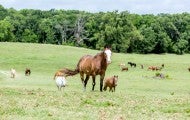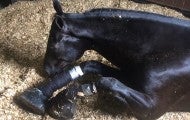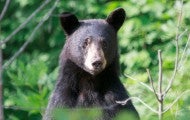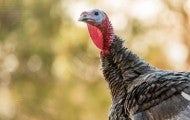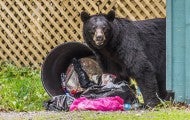WASHINGTON—The Prevent All Soring Tactics (PAST) Act, H.R. 3090, which aims to put an end to the cruel practice of horse soring, has been reintroduced in the U.S. House of Representatives with a strong bipartisan set of 185 original co-sponsors led by Reps. Brian Fitzpatrick, R-Pa., Steve Cohen, D...
Today, the U.S. Department of Agriculture announced a long-awaited final rule that would help end horse soring, an extremely cruel practice in which trainers secretly and deliberately cause intense pain to show horses to produce the “Big Lick,” an exaggerated, high-stepping gait rewarded by judges...
In a quiet corner of Black Beauty Ranch, on a stone plinth beneath a maple tree, there’s an oval etching of a man and a burro. The man is Cleveland Amory, author and founder of the Fund for Animals, and the burro is Friendly, one of the first animals to call the sanctuary home. The two met in 1980...
Soring involves the intentional infliction of pain to a horse's legs or hooves in order to force the horse to perform an artificial, exaggerated gait. Caustic chemicals—blistering agents like mustard oil, diesel fuel and kerosene—are applied to the horse's limbs, causing extreme pain and suffering...
As black bear numbers increase in some North American communities and more people move into bear habitat, encounters between bears and people have risen. Whether you live in bear country or are just visiting, you can take simple steps to avoid conflicts. Learn More About Bears (Please note that this...
It started in 2002: The bears around Durango, Colorado, came down from the hills to feast on the city’s garbage. Normally, natural food—nuts and berries and acorns—keeps them in the woods, but a series of droughts and late freezes in 2002, 2007, 2012 and 2017 left them hungry. Despite their fear of...
